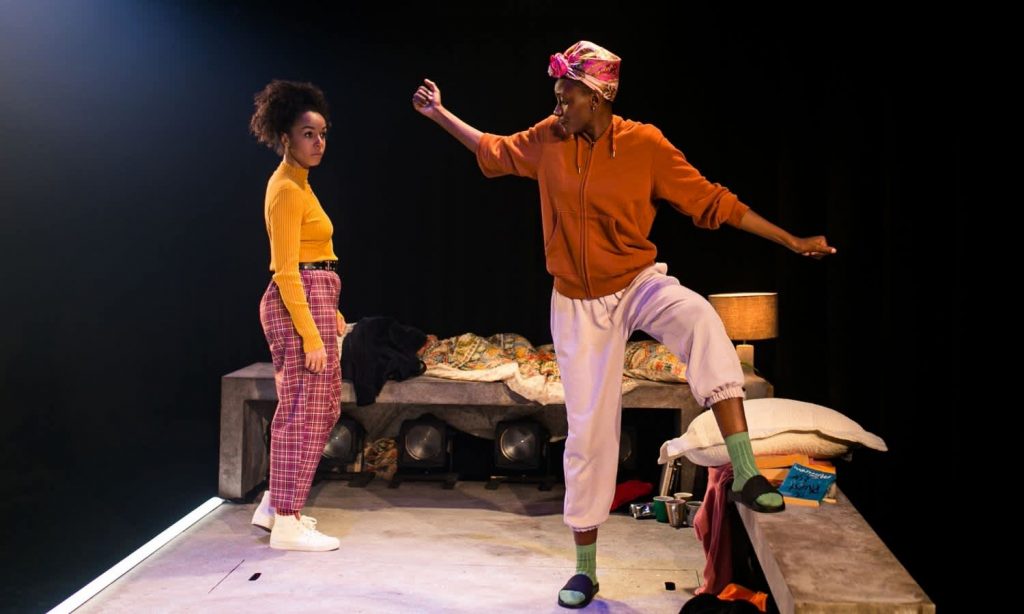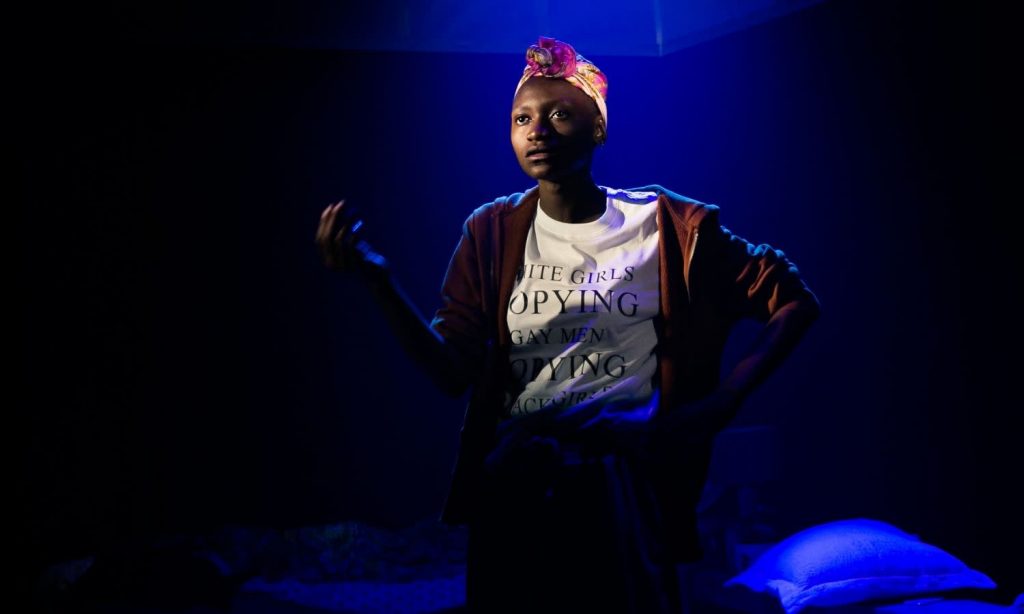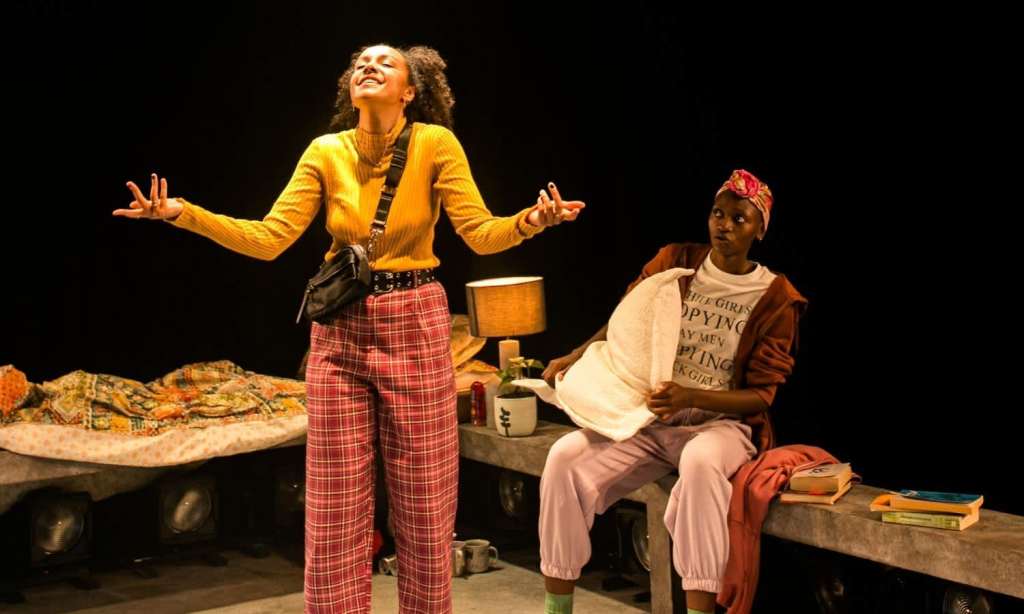When is it “permissible” for a Black woman to feel and express rage at centuries of oppression and violence, without being slapped with the “angry Black woman” stereotype?
Why is it that Black women are criticised for their features, hairstyles and makeup, but those same features are deemed palatable when appropriated by white women?
Is it possible for two friends to understand that they have both struggled and suffered in different ways as Black and biracial and to acknowledge that all trauma carries significant, if not equal, weight?
These are just a few of the questions Seven Methods of Killing Kylie Jenner poses as it takes the audience through a heated debate between best friends Cleo and Kara who are grappling with differing views on the success of the youngest member of the Kardashian clan, and how it is intrinsically linked with colonialism and cultural appropriation.

After Cleo (Moreblessing Maturure) discovers on Twitter that Jenner has been named the worlds youngest self-made billionaire by Forbes, she embarks on a Twitter spree outlaying the various ways she wishes death would befall the reality star. The seven different methods, which range from drowning to disgrace to displacement, are all reflective of the crimes that have been perpetrated against Black bodies for centuries as Cleo argues that Jenner has profited off of the very same things Black women are ostracised for.
Providing a juxtaposition to Cleo’s intensity is her best friend Kara (Vivienne Awosoga), who shares a different outlook from her friend. Yes, it’s frustrating that Jenner is being touted as “self-made” when she has so obviously benefitted from generational wealth, but Kara seems more resigned to these occurrences and tries to focus her attention elsewhere.
On the surface, these differences seem to be just that — surface — but as the play progresses it becomes clear that the two women are at odds over their own experiences with racial discrimination and its resulting trauma. For Cleo, she resents her friend for being “light-skinned” and therefore seen as desirable and “acceptable” while she herself has felt invisible and vilified. Conversely, Kara has suffered from a life of being fetishised and tokenised and has struggled with feelings of self-loathing as she has denied her true identity in order to fit in.
The friend’s wide-ranging debate is interspersed with humorous “Twitter breaks” as the pair recite the reactions that Cleo — as @INCOGNEGRO — receives for each of her posts about wanting to see Jenner dead. These beats provide yet another layer to the story as they take the audience into the world of social media and all of its hypocrisy. At first, the keyboard warriors are amused by Cleo’s tirade, but soon decide she has gone too far and carry out their own mission to unearth Tweets that she has previously posted to prove that she is morally corrupt and has no place commenting on the success of a “self-made” white woman (of whom they declare her to be jealous.)

Soon, Cleo finds herself in a threatening online environment and, exhausted and scared, is forced to explain her rage for the umpteenth time to the very people who are historically and institutionally responsible for it.
Seven Methods of Killing Kylie Jenner is brilliant and brutal but delivers humour and levity in all of the right places to keep the story moving and the audience engaged. It employs a simple yet clever set design and offers up layer after layer of complexity as it explores friendship, Queerness, capitalism, double standards, racism, social media and so much more.
The dialogue is tight and shuttles between just the right about of exposition and a healthy dose of Twitter abbreviations (IRL, JS, NVM etc) — perhaps to remind us that these are, in fact, two very young women burdened by the unbearable weight of centuries of systemic abuse.
Seven Methods of Killing Kylie Jenner is written by Jasmine Lee-Jones and produced by an all-female all-female production team, including director — and proud Bardi, Jabirr Jabirr woman — Shari Sebbens. The show runs until May 2 and tickets are available now.
Read more stories from The Latch and subscribe to our email newsletter.







